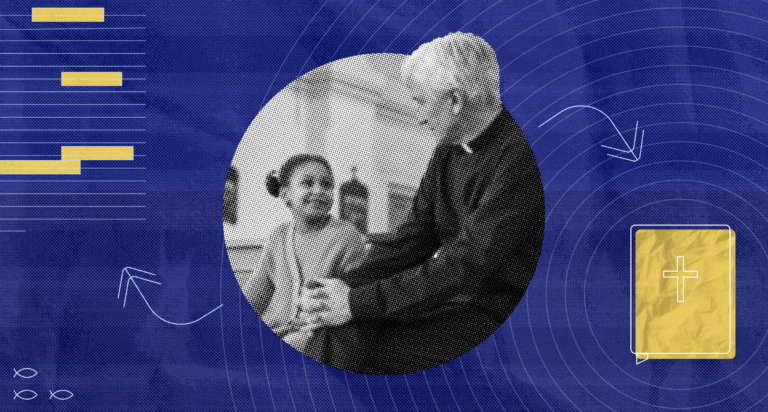Paul’s Farewell Speech is sometimes considered his “last testament,” even though he does not die for several years. For the Ephesian elders, with whom he had labored for three years, this was the last time they would see Paul. The brief sermon is filled with emotion, and the scene is rather dramatic and climactic. After Acts 20, Paul will be under arrest and in constant danger.
Paul is presented in this speech as a model for the Ephesian elders to follow, not unlike Paul in 1 Thessalonians 2. Paul encourages the elders to devote themselves to the work of the ministry because the Spirit calls them, and they respond to God’s grace; they are not greedy, but are to work hard, just as Paul has.
First, Paul has faithfully fulfilled his calling (20:18-21). The memory of the elders is important to Paul’s point since he will say nothing here that they do not already know. They are to recall how Paul conducted himself while he was in Ephesus. They are asked to remember:
- His humility and tears. Humility was not considered a virtue in the Greco-Roman world, and the word here was used as a pejorative (meaning “slavish”; Witherington, Acts, 616). Yet Paul demonstrated by his own lifestyle that the way to follow Christ is to be a servant of all.
- His severe tests at the hands of the Jews. The plots Paul has in mind may be all the various persecutions he has faced, especially since the Jews in Ephesus are not described as plotting against him in Acts 19. It is possible this is a hint of imprisonment in Ephesus, although that is unclear from this text.
- His lack of hesitation and boldness of speech. This refers to public and private instruction in the school of Tyrannus or the Synagogue.
The core of Paul’s gospel is that both Jews and Gentiles ought to turn to God and have faith in the Lord Jesus.
Now Paul must go on to Jerusalem (20:22-24). A significant theme in the next two chapters is that the Spirit of God compels Paul to go to Jerusalem. This is not a change for Paul since he has already returned to Jerusalem several times. The difference here is that now he knows that he is going to suffer.
Moreover, Paul describes himself as being compelled. The verb appears in the perfect; he has already been compelled when he makes this speech. What is ironic is that the other uses of this word in Acts refer to physical binding during arrest, including Acts 9:2, where Saul desires to bind believers in Jesus and compel them to go to Jerusalem.
While he knows that hardships await him, he is confident that the trip to Jerusalem will allow him to continue testifying to the Grace of God. The trip to Jerusalem is described as “finishing the race,” a phrase found in several Pauline texts (1 Cor 9:24, Phil 3:14, 2 Tim 4:7).
If he does not go to Jerusalem, Paul would consider himself to have not finished what God has called him to do. One wonders, at this point, if he was thinking about the nations coming to Jerusalem in eschatological terms; the gospel going to the Gentiles (and by this point, perhaps certainly the response among the Jews) must be a sign that the kingdom is not going to be delayed long.
Paul then warns the elders of the trials they will soon face (20:25-31). The Holy Spirit appointed the elders to shepherd the flock. This is the same Spirit that compels Paul to go on to Jerusalem. This involves keeping watch over the church to guard it against enemies. But this also involves watching themselves. They are to be worthy shepherds! These “wolves” seek to tear the congregation apart, and at this point may refer to elements in Ephesus, whether Greek or Jewish, that see Christianity as a threat.
Paul then warns of threats that will arise from within the congregation itself. Since he is using the metaphor of a flock, it is natural that the flock will be attacked by “savage wolves” who seek to destroy it. Perhaps the most disturbing prediction is that these wolves may very well arise from within their congregation – some men will arise, distort the truth, and draw disciples away after them.
Paul’s Final Commission to the Elders (20:32-35). The elders are “committed to God and the word of Grace.” To be “committed” in this context implies a trust. Paul has entrusted the Gospel of the Grace of God to the elders through his years of service in Ephesus, and it is this trust that they must guard.
Paul uses himself as an example of this kind of selfless service. Since Paul did not intend to profit from the gospel, the elders are not to be motivated by greed (1 Cor 9:12-15; 2 Cor 7:2). Paul emphasizes his self-sufficiency, a crucial point considering the riot in Ephesus was economically motivated. His collection for the Jerusalem church may also have been viewed as a form of greed. This is a claim Paul regularly made, especially in the letters to the Corinthians written from Ephesus. While Paul was refusing gifts from Corinth, he worked hard in Ephesus to avoid being a burden.
Finally, Paul closes with a quote from Jesus’ teaching: “It is more blessed to give than to receive.” This is a rare quote from Jesus’ teaching in the Book of Acts or in any other “non-gospel,” for that matter. The trouble is that the line does not appear in the Gospels. There is a variation on this line in 1 Clement 2:1, and Sirach 4:31 expresses a similar idea, indicating that the concept was current in the Second Temple period. The line may be drawn from Luke 6:35-38, which expresses a similar idea to this line in Acts, although the wording differs.
On the other hand, it should not surprise us that Jesus said other things outside those collected in the gospels. Both Luke and John indicate that there is far more to be said about Jesus than could be recorded.
What is remarkable about this line is the social implications in a Greco-Roman world. Reciprocal relationships and extensive social networks characterized the culture of the Roman world. If one gave a gift, then one could expect a gift in return at some point. One tried to develop social status by doing good for people, but only in the context of expecting a return on the investment! Paul reverses this social pattern by stating that the elders ought to do good because they are called to by the Holy Spirit and have received ultimate grace from God in salvation. They are not to function as a Roman world while executing the task of an elder.
This final scene is full of emotion. Paul is confident that he will not see these elders again (20:36-38). According to some traditions, Paul was released from prison around AD 64 and continued his ministry, but he was unaware of this. He has been warned that he will suffer much in Jerusalem. Romans 15 indicates that Paul plans to continue moving west, possibly establishing himself in Rome before proceeding to Spain. If this was his ultimate plan, then perhaps this farewell can be seen as an indication that he views the church at Ephesus as self-sufficient and no longer needing his careful supervision and guidance. He is now free to move out into new regions.

 1 week ago
33
1 week ago
33










 English (US) ·
English (US) ·